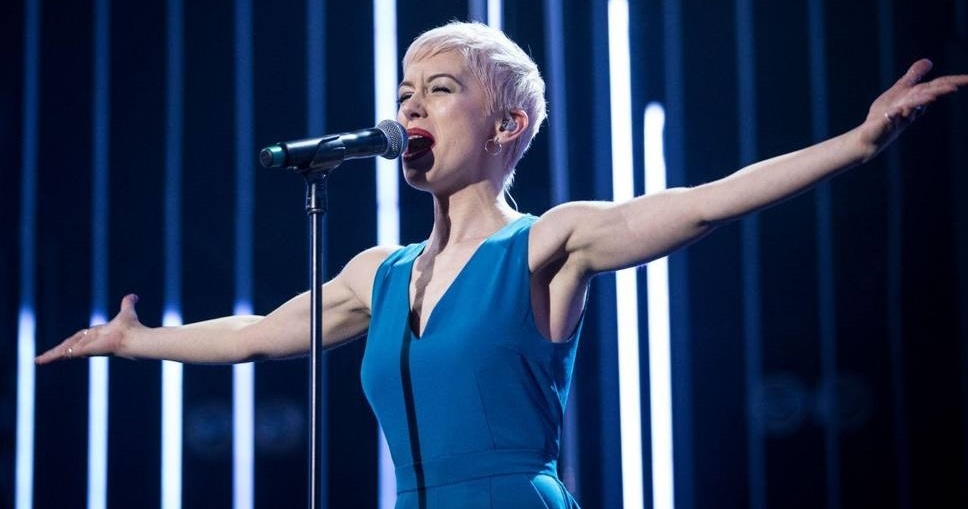
Ten things we took away from SuRie’s UK final win

Ten things we took away from SuRie’s UK final win
The United Kingdom has selected its entry for the 2018 Eurovision Song Contest – but what did we learn from the national final experience and SuRie’s victory with “Storm”?
1. The best performance won, not only vocally but visually. Several of the Eurovision: You Decide entries were filmed with lots of movement and long shots that didn’t really let the viewer properly take in what was happening. SuRie’s filming was a lot tighter and less frantic, allowing her quietly charismatic live presence to take centre stage (although her arms do have an unfortunate tendency to fall into a “salute” pose).
2. The best song didn’t win. There are persuasive arguments that Asanda’s “Legends” or Jaz Ellington’s “You” would have made a better entry from a purely musical perspective. But as we said in our preview, “Storm”, while rather a safe and unadventurous composition, was also the song best positioned to benefit from an engaging live performance and a strong vocal – whereas Asanda’s live delivery left something to be desired and Jaz, though vocally solid for the most part, was too introverted to really engage with the audience. And hey: when it comes to ESC, a song that’s better live than in studio is preferable to the opposite.
3. The show benefited from the addition of Måns Zelmerlöw as co-host. Calling him an inspired choice would be excessive – he’s UK-based, he’s hosted the main event before, and you know he’s always going to do a quietly professional job – but he provided an effective foil for Mel Giedroyc’s more scattershot approach to presenting. Plus he got some of the best lines of the night, from San Marino to “Tomsk!”.
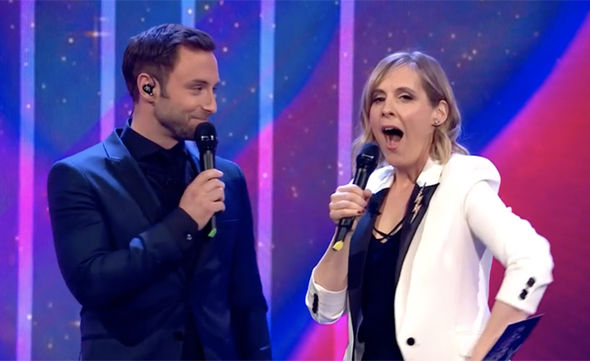
The hosts with the most
4. The panel of experts – two musicians and Rylan – was less successful. Granted, the invited guests were more coherent than their counterparts in previous years, but what they said didn’t add anything truly constructive to proceedings, and it remains an uneasy feeling to see televoters being “guided” so openly. Added to that, their comments focused almost solely on the performances and not on the songs – perhaps inevitable when the compositions are all workshopped and none of the performers actually “own” them, but still, the end result was a slightly confused narrative.
5. The EU flags in the audience were great to see, of course. Expect an outraged Daily Mail article before the day is out.
6. Did you know the show was held in Brighton? Did you know that’s where ABBA won Eurovision? You sure did by the end of the 90 minutes. Brighton, Brighton, Brighton. Dome. ABBA. Brighton. ABBA. Dome. Brighton. Still, the BBC has a history of that kind of thing…
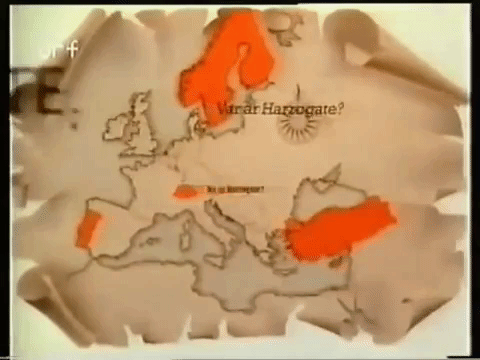
7. Getting back to the chosen entry, having been a backing singer for Belgium in 2015 and 2017, SuRie boasts plenty of recent ESC experience. So often the UK representatives go into the competition not knowing what to expect or with an outdated view of things – just ask Pete Waterman! – and end up being overwhelmed by the modern-day ESC experience or, at best, woefully underprepared. SuRie won’t be fazed by the madness of the Eurovision “bubble”, and she knows exactly how it feels to perform to an arena full of loud, crazy, mildly inebriated fans. That’s useful.
8. Her whole Annie Lennox vibe might not be a bad thing, either. There’s no harm in an entry having an obvious geographical hallmark, and since the UK is never going to send Morris dancers, Basil Fawlty or a choir of football hooligans to represent it at the contest, why not see if viewers can be subconsciously reminded of one of the country’s more successful musical exports?
9. At the same time, if we’re looking for omens, the recent ESC entry “Storm” most closely resembles in look and feel is probably last year’s German entry. And that didn’t turn out especially well…
10. Even if it suffers the same fate, though, what the UK is gradually getting better at is framing their result at the contest. There will always be voices of dissent – the tired “it’s all political!” line will never disappear, especially in a country with one of the most turbulent relationships with “Europe” as a broader concept. But the last three years have seen the BBC trying harder to highlight the positives and dwell less on the negatives, with Lucie Jones’s strong jury result and even Joe and Jake’s douze points from Malta being celebrated as they should be – with a certain tongue-in-cheek playfulness, but not without gratitude. Moreover, the UK’s ESC broadcasts seem to be getting better at embracing the contest as a party event and celebrating the genuinely excellent entries it gives us each year rather than seeing them merely as “countries that beat us”. Long may that continue.
The United Kingdom is automatically qualified for the grand final of the Eurovision Song Contest on Saturday 12 May as one of the “big five”. You can watch their entry, “Storm” by SuRie”, here:
Visit our Eurovision Chat!
0 Comments
Visit our Eurovision Chat!
Follow us:
Shkodra Elektronike from Albania are the winners of ChatVote 2025!
The 21st annual edition of ChatVote is over, and the best song in the forthcoming Eurovision Song Contest is the entry from… Albania!
SongHunt 2025: Detailed results
Time to reveal the full results of SongHunt 2025, including the top ranks of the semi-finals and the split results of the final!
ChatVote 2025 is launched – the voting lines are open!
It’s time for the 21st edition of our legendary annual event. For our chat regulars, the lines are now open for you to submit your votes!
“This Dream Of Mine” by Arwin is the winner of SongHunt 2025!
Our chat community and the public have decided: “This Dream Of Mine” by Arwin from Sweden is the most ROBBED song of the 2025 Eurovision national final season!
ESC 2025: Semi-final running orders revealed!
Who’ll be singing where in which semi-final? It’s the big question – and the official Eurovision YouTube account revealed all this evening!
SongHunt 2025 – Semi-final 3
The SongHunt continues! Semi-final 3 is open and YOUR votes will help to decide who qualifies, so get involved!
SongHunt 2025 – Semi-final 2
The SongHunt continues! Semi-final 2 is open and YOUR votes will help to decide who qualifies, so get involved!
SongHunt 2025 – Semi-final 1
Let the SongHunt begin! Semi-final 1 is open and YOUR votes will help to decide who qualifies, so get involved!
SongHunt 2025 is launched!
It’s time for SongHunt 2025! The public polls and chat events are nearly upon us, and there are some changes you’ll want to know about – so read all about it here and save the dates in your calendars!
Potted Basel: Allocation draw for 2025 takes place
Today saw the allocation draw for the 2025 Eurovision Song Contest to be held in Basel, Switzerland. Here’s how the countries will line up in the two semi-finals!
Shkodra Elektronike from Albania are the winners of ChatVote 2025!
The 21st annual edition of ChatVote is over, and the best song in the forthcoming Eurovision Song Contest is the entry from… Albania!
SongHunt 2025: Detailed results
Time to reveal the full results of SongHunt 2025, including the top ranks of the semi-finals and the split results of the final!
ChatVote 2025 is launched – the voting lines are open!
It’s time for the 21st edition of our legendary annual event. For our chat regulars, the lines are now open for you to submit your votes!
“This Dream Of Mine” by Arwin is the winner of SongHunt 2025!
Our chat community and the public have decided: “This Dream Of Mine” by Arwin from Sweden is the most ROBBED song of the 2025 Eurovision national final season!
escgo! on Twitter

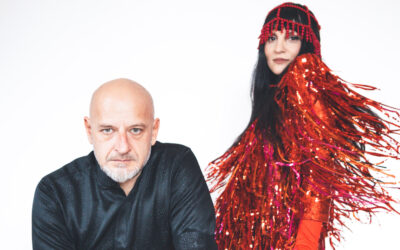

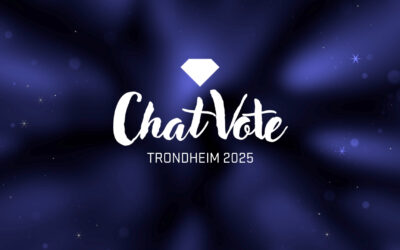
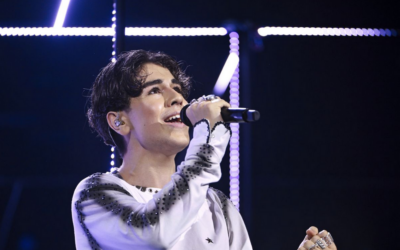

0 Comments